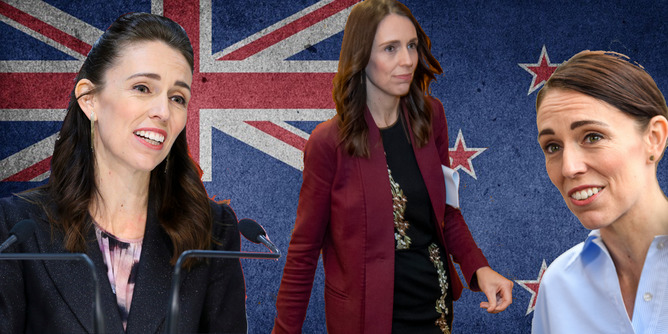How to Deal With The Coronavirus Crisis? Jacinda Ardern Gives 7 Lessons to All World Leaders

The coronavirus pandemic has already changed the world beyond recognition.
But the crisis has also exposed the varying approaches of different countries and their leaders when confronted with unprecedented challenges.
And there’s one leader who, by all accounts, has shone in this uncertain time: New Zealand’s prime minister Jacinda Ardern.
It was announced today that Ardern and her ministers would be taking a 20 per cent pay cut in solidarity with New Zealand’s workforce. At the time of writing, there have been just nine recorded deaths in New Zealand and 1,366 confirmed cases of Covid-19.
While New Zealand’s population is smaller than countries like the UK and USA, whose totals are much higher, these figures are still extremely low. Ireland, a country with a similar population, has recorded over 400 deaths so far.
But it’s also been impressive to see the manner in which Ardern has calmly guided her country through this crisis so far.
This isn’t the first time that Ardern has impressed the world with her composure and compassion. We already saw that she has the ability to approach tragedy with empathy, consistency and kindness in the aftermath of 2019’s horrific Mosque shooting in Christchurch.
So here are seven lessons that the other world leaders *ahem Trump* can learn from Ardern’s approach to tackling the coronavirus crisis…
1. Act decisively before things get really bad
As coronavirus spread across the world, Ardern’s message to New Zealand was simple: “We go hard, we go early.”
From the beginning, Ardern stated that New Zealand had a “the window of opportunity” to minimise the harm caused by the virus. This window was missed in other countries, including the UK, where it’s often felt very much like the government is playing catch up, rather than taking the lead.
The perception that politicians don’t know what they are doing, no matter how true that might be, can be unsettling and cause tensions to arise between the government and the public. New Zealand actually went into “lockdown” before the UK, despite recording far fewer cases at the time and having zero recorded deaths. Rather than wait for the worst to come, Ardern acted fast.
2. Show your human side
It’s important during a time of crisis that people feel like their leader is a person who understands them.
Ardern has clearly spelled out how tough this will be on everyone emotionally (in a similar approach to Scotland’s first minister Nicola Sturgeon, which has been great to see). She even reassured children by confirming that the Easter bunny and tooth fairy are “key workers”.
Trump, on the other hand, recently used a press briefing to attack reporters and show a “propaganda video”. In the UK, Priti Patel was mocked and criticised for giving a classic “non-apology” for a lack of protective equipment for NHS staff.
3. Be consistent
Arden has kept her messaging clear and consistent. She hasn’t been mixing her words or confusing people about whether it’s OK to go to the park (unlike the UK government). She’s not muddled between a seven and 14 day quarantine (again, unlike the UK) and she’s not changed strategy altogether at any point (and again, unlike the UK).
4. Don’t downplay potentially dangerous situations
Ardern has been open and honest that coronavirus requires some of the biggest “restriction of movement in modern history”. She’s treated people like adults, saying that the government “will do all it can to protect you”, while urging people to follow the guidelines.
Trump consistently downplayed coronavirus when it first came to America, even saying one day it’ll just “disappear”. Brazil’s president Jair Bolsonaro has also downplayed the problem, to the extent that criminal gangs are enforcing lockdown in the absence of government intervention.
5. Follow what works
World leaders across the world have talked a big talk around testing. The UK and the US have both been incredibly slow off the mark when it comes to testing people (rather than just talking about it).
Rapid testing has been credited with “flattening the curve” in countries such as South Korea and Taiwan, so that’s the approach New Zealand has taken.
On 8 April it was revealed that New Zealand had recorded its lowest number of new transmissions in a two-week period after testing a record number of people.
6. Practice what you preach
It sounds basic, but all of Ardern’s press briefings have been conducted adhering to her own guidelines, as her behaviour (that we know about) since the crisis began.
Meanwhile it’s become commonplace for Trump to conduct his press briefings surrounded by people (including his most recent highly publicised meltdown). The UK government’s press briefings were also conducted in close proximity until just days before Boris Johnson was hospitalised with Covid-19.
The British PM also famously said that he’d still been shaking hands with people and implied he would consider visiting his mum on Mother’s Day, despite telling others not to. MPs were also criticised when parliament’s weekly PMQs went ahead less than 24 hours after Nadine Dorries became the first MP to test positive.
Ardern also acted decisively to demote a health minister who flouted her government’s social distancing measures, whereas acting PM Dominic Raab was criticised for appearing not to discipline housing minister Robert Jenrick for visiting his parents during lockdown.
7. Emphasise kindness
At a press briefing last week, Ardern told the nation: “Be strong and be kind.” She’s also smiled throughout her press briefings, proving that you don’t need to be sombre to get people to listen to you if you’re confident in your plans.
When asked if she was scared by the challenges ahead, she replied: “No,” she said. “Because we have a plan.”



